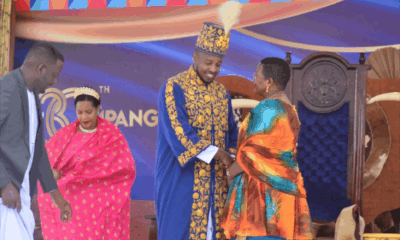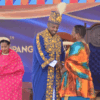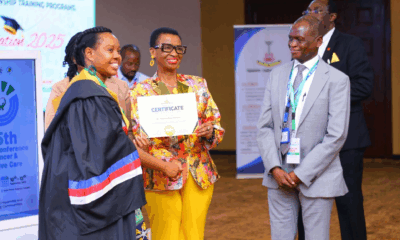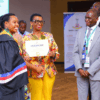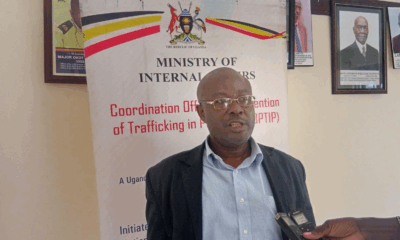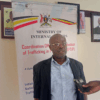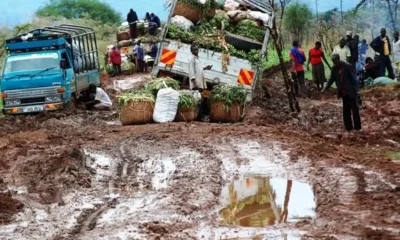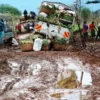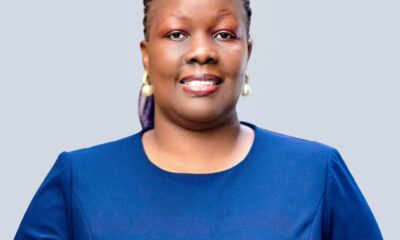Opinions
NRM’s view point is to emphasize interests of people rather than identity
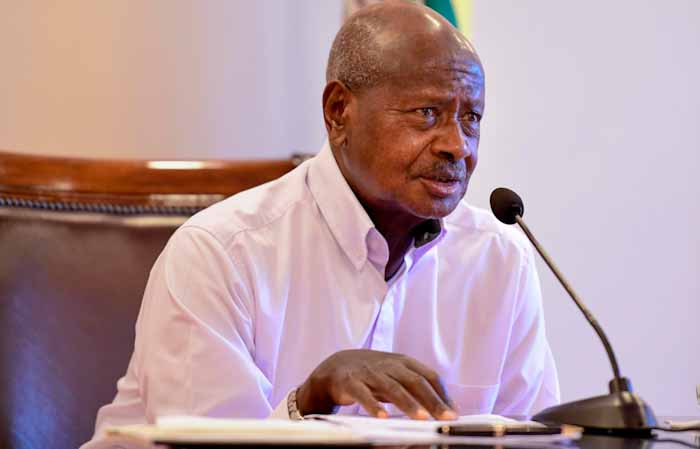
President Yoweri Museveni
By Yoweri Kaguta Museveni
The recent shameful conduct, in some cases, during the recent NRM primaries is most annoying to the patriots.
However, it is, nevertheless, a great success, historically speaking. Why and how? It is because Africa has been misgoverned and misdirected for the last 500 years, to its peril and huge losses.
Let me start with the misdirection. Misdirection meaning that opinion leaders (Kings, Priests, community leaders etc.), accurately diagnosing, finding out what the problem of the society is and telling the people how to get out of the problem (prescription). I am using medical words here but, in management of society, these have equivalents. Diagnosis and direction would be equivalent to ideology and analysis of social issues and prescriptions would be strategy and policy.
Up to 1498, when Vasco Da Gama went around the Cape of Good Hope and, through Mombasa, proceeded on to India, I, long ago, forgave the tribal chiefs for their promotion of narrow tribal chauvinism over their fiefdoms in the form of chiefdoms and little kingdoms. It is after this date, that the tribal chiefs must stand condemned historically for continuing to be agents of weakness for Africa by continuing to preach parochialism in the form of tribal chauvinism when the enemies of Africa were acting on a global scale, building colonial Empires that spread over continents for their benefit and to our disadvantage and even peril. It is due to our strong genes and our civilization, that we did not disappear as happened to other colonized peoples – the Red Indians of North America, the Incas, the Aztecs of Peru and Mexico respectively, the Caribes of the Caribeans, the Indians of Brazil and the Aborigines of Australia. Otherwise, the conquest of Africa facilitated by the Chiefs was potentially fatal. Indeed, part of Kenya, by the 1950s, was being referred to as the “White Highlands”, Ian Smith in Rhodesia (Zimbabwe) had predicted that the Whites would control that Country for 1000 years, Angola, Mozambique, Guinea Bissau and Sao Tome had long been declared “Overseas Provinces” of Portugal and South Africa and Namibia had been declared White Countries.
To the tribal chauvinism, the colonialists added the problem of religious sectarianism using the newly introduced religions of Islam, Catholicism, Protestantism, etc.
In Uganda, on the dawn of Independence, we had sectarian parties precisely built on those lines: DP for the Catholics, UPC for the Protestants and KY for the Baganda Protestants and some Moslems.
In reality, it was the elites manipulating the masses using these labels to get to the few administrative posts and to get elected when elections were introduced. The masses had nothing to benefit from this disorientation. If there was no passable or good road to my area of Gomba, all the people there suffered whether they were Catholics, Protestants, Moslems, Baganda or non-Baganda, as long as they lived in the areas of Butambala, Gomba, Mawogola, Buddu etc.
Under development was “democratic”, affecting all, while the politics pushed by the elite was sectarian. It did not help the peasants to know that the saza chief, the Gombolola chief or later on, the MP, was from this religion or that tribe.
This is the inebriation, the incapacitation, the myopic traditional and opportunistic tribal and political leaders imposed on the society ever since 1498, until the advent of the NRM which came with the different view-point. The view point of emphasizing the interests (the needs) of the people rather than identity: “I am this tribe; I am that religion”. The NRM answers the questions: “Who will teach my Children? Who will treat my sickness? Who will buy the merchandize from my shop (ani anagula eby’ omu duuka yaange)? Who will buy my farm products: Coffee, bananas, fruits, milk, beef, poultry etc.?
Who will buy our industrial products: cement, steel, soap, beer, soft drinks, motor-cycle tyres, textiles etc., etc.?”
It is the answer to these questions that will give us a healthy basis for peace and beneficial politics. This is the NRM politics that concentrates on the politics of livelihood (wealth) and jobs for the people. Identity is important; but it cannot be more important than livelihoods and jobs.
Identity without peace, without wealth, without jobs and without development (roads, railways, schools, health centers etc.), is hell, if not death.
Countries that are lured by enemies into that disorientation end up with disaster. You want examples? Afghanistan, Syria, Libya, Somalia etc. Opportunists and their foreign backers emphasized identity and they reaped incredible death and disintegration. That is how Uganda had become.
Yet, when you are clever, you can protect identities of People without interfering with or indeed promoting, the Politics of wealth, jobs and development that are captured in the four principles of: Patriotism, Pan-Africanism, social- economic transformation and democracy, that are the principles of the NRM. Patriotism and Pan- Africanism consolidate and expand the purchasing power and market of the Africans to support the prosperity of the Africans: wealth, jobs and development. The more you sell of the products and services you produce, the wealthier you become, the more jobs you create, the more revenue you generate for the government and the more development can the government deliver in the form of roads, the railways, Schools, health Centres, wealth funds, welfare support etc. All modern Countries have developed and become rich by selling alot. If you do not sell, you cannot grow. Therefore, the major element of our politics should be about markets. Any leader who does not see this, is a danger to the future of Africa, Uganda included.
Therefore, in the last 500 years, the biggest enemies of Africa are these that have been pushing Sectarian chauvinism – tribal, religious or gender (looking down on women), whether they do it consciously or unconsciously.
It is against this enemy line that the NRM objected to, starting in 1965. Instead of identity, we emphasized interests of the People: peace, wealth, jobs, health, education, infrastructure (roads, the railways etc.), hence as already said, the four NRM principles: Patriotism, Pan- Africanism, Social – economic transformation and democracy. Patriotism and Pan-Africanism ensure strategic security and the integration of the markets that will absorb our products as we expand production from the 4 wealth and jobs creation sectors of: Commercial agriculture with ekibaro, factories (big and small), services (hotels, transport, banking, insurance, entertainment etc. etc.) and ICT. It is because of this re-orientation of the diagnosis of social and historic phenomena in Uganda, that our Country was able to come up to where it is now. On account of the ideological reorientation and the new direction set by the NRM, Uganda has been able to recover.
How and why did Uganda recover? It is the following steps that enabled Uganda to recover:
- A strong Army (the NRA – UPDF) that ensured peace in the whole Country for the first time in 500 years.
- Pro – private sector policies that attracted back the bagagga (the rich people – investors) and enabled the creation of the new bagagga that are able to produce goods and services domestically instead of importing them (cement, steel products, sugar, beer, sodas, soaps, textiles etc.); create jobs; and pay taxes.
- As a consequence, on account of improved tax collection, Government revenues have gone from UGX 5bn in 1986 to UGX 21, 000bn today. This is a growth of over 4,200 times.
- On account of improved taxes, we have been able to deal with health (immunization, especially) and that is why the population has grown from 14 million in 1986 to 46 million today and no new disabled people (no polio, no measles etc.). There is, however, still a problem of stealing drugs on the curative side.
- Education has expanded with 15 million children being in the School system compared to the fewer than 3 million populations that was in the school system in 1986.
- We have modernized and expanded or we have created the new infrastructure assets, especially the roads, the railways, electricity, the ICT backbone, the telecommunications, the media infrastructure etc. This one has the effect of lowering the costs of production in the economy and making Uganda a competitive and investor attractive destination. Recently, in Jinja Barracks, the President of the Indian Association described Uganda as a land of three Ps: Peaceful, Pleasant and Profitable. That is exactly what the NRM has made Uganda for the more business – minded People. Yet, we are just beginning. Besides, we need to hook everybody into the money economy – those from the Bakolera ekida kyoonka (subsistence activities).
- We have put in place the Wealth Funds and have capitalized the UDB so that that Bank can fund new factories, hotels and agricultural projects. The Wealth Funds are: OWC, the Youth Fund, the Women Fund, the Micro- finance, the Myooga Funds etc. More money should be put in this effort.
- We have increased the salaries of Public Servants, although that effort is not well co-ordinated. I always want to start by paying the government scientists, the security personnel and the government teachers well first, if the money is not enough to pay everybody well. There is no convergence by some of the leaders on this issue. We may have to put it to a referendum.
I, therefore, use this occasion to re-affirm that, indeed, the NRM, by ideologically re-orienting the politics of Uganda, has rescued our country from peace and development deficit to a country of peace surplus and development surplus, certain problems notwithstanding.
The UNC had tried in the 1950s to build a national liberation Party but had been undermined. When the colonizers were retreating, some elements within the opportunistic elite political class, introduced a new problem, in addition to the 500 years old problem of emphasizing identity instead of emphasizing People’s interests that I have explained above. The additional new problem by elements of the elite is election rigging. Starting with 1961, for the elections organized by a British man known as Peagram, election rigging, designed to nullify the sovereignty of the People, was introduced. Initially, 1961 – 1989, it involved the following:
- Gerrymandering constituencies by not following existing administrative boundaries (especially counties) and creating adhoc and planning-wise meaningless electoral areas designed to dilute the votes of the undesirable groups with the desirable groups;
- Using multiple ballot boxes and ballot papers;
- Hiding behind obusharagaate (temporary enclosures), to vote which eased the work of ballot stuffing etc.
- Multiple registrations and voting. The Honorable Kategaya confessed that he voted 8 times while I did not vote in either 1961 or 1962 and yet we were both under age. The voting age was 21 at that time;
- Not counting immediately after voting and transporting ballot boxes, 90 miles from Burunga to Mbarara for counting and tampering with them in the process etc., etc.
All this meant that the power of the voters could be nullified by cheating. Indeed, during the 1980 elections, one of the Parties was declaring that: “We shall win whether you vote for us or not”. How will you win, if we do not vote for you? The answer was simple: “By cheating”.
The practice of cheating is dangerous for peace and development. Why? It is because the elected People do not care and do not bother to solve the problems of the electors (kubakyenuura – to solve problems). Why? It is because they know that they will be “elected”, again, whether they kukyenuura the People in their electorate or not. It also affects budgeting. Elected people start budgeting for other things other than the problems of the People they represent.
That is why we had to fight in 1980. At that time, there was also a problem of extra-judicial killings. Criticism or disagreements, meant death.
In 1989, when we expanded the NRC and when we elected the LCs, we used the system of lining behind candidates. It was transparent and it was popular. It gave power to the electors for the first time. If we did not vote for you, you could not represent us Period. With the CA, 1994, we went back to secret ballot. Although we had put in place a lot of reforms that did away with the Peagram mess of 1961-62, all these reforms depended on the vigilance of the electors and the integrity of the election officials. Both were totally lacking. As a consequence, therefore, especially the opposition, but also some NRM leaders have been cheating, especially in the NRM primaries, where we do not have enough funds.
That is why, at its Chobe conference, the NRM CEC, decided to go back to lining behind candidates and the electoral unit would be the village. This was a trap for the cheaters. Everybody would see what had happened during the day. Incredibly, some people still thought they could cheat. How? By: intimidating voters; attacking some with pangas; misusing the Police to attack voters; using the underage to vote; importing people from other villages to vote where they are not supposed to vote; using lorries to shift voters from one village to another area; and, even, more incredibly, announcing different results from what happened in the voting (altering results). This is why I say that it was a step forward in the right direction in spite of the appearance of chaos. There was “method” (a plan) in the “chaos”. It was a trap, laid by CEC, against the thieves. Why? Three reasons:
- Voting took place during the day;
- Very many people were there and saw what happened;
- The villages had not shifted (kufuruka).
As Chairman of the NRM, when I was informed of this criminality, I ordered a nationwide audit which has done a good job, for a start. Although the time was short, the audit will continue even after the nomination. Cheating is a crime.
Even after you are nominated, you can be indicted in court. I am also auditing the auditors, just in case they are also compromised. All those who committed these crimes, will be held accountable. This is on the Party side.
On the national level, the answer is in electronically-read finger prints which Justice Byabakama will ensure. God gave each one of us a unique stamp, the fingerprint. All human beings have got unique fingerprints. Together with all the other electoral reforms we did in 1994, the electronically read fingerprints, if it is correctly, implemented by the EC, will end cheating in the elections in Uganda forever.
In terms of okukyenuura (solving the problems) of the Wanayinch, especially the poor, we are remaining with two issues: engabula (distribution of the budget money) and obubbi (corruption) by officials. I have told my NRM colleagues repeatedly, that my ngabula (budget priorities) are as follows:
- Defence and Security;
- Roads and the Railways;
- Electricity;
- Schools;
- Health;
- Wealth Funds: OWC, Youth Fund, Women Fund, Emyooga Fund etc.
- Salaries for government Scientists, teachers, security personnel and government lawyers.
With these, the economy will soar even more than it has done.
Down with cheating in elections; long live engabula (budget distribution) that follows my priorities that includes massive funds for the Banaku (the poor).
YKM
Comments



